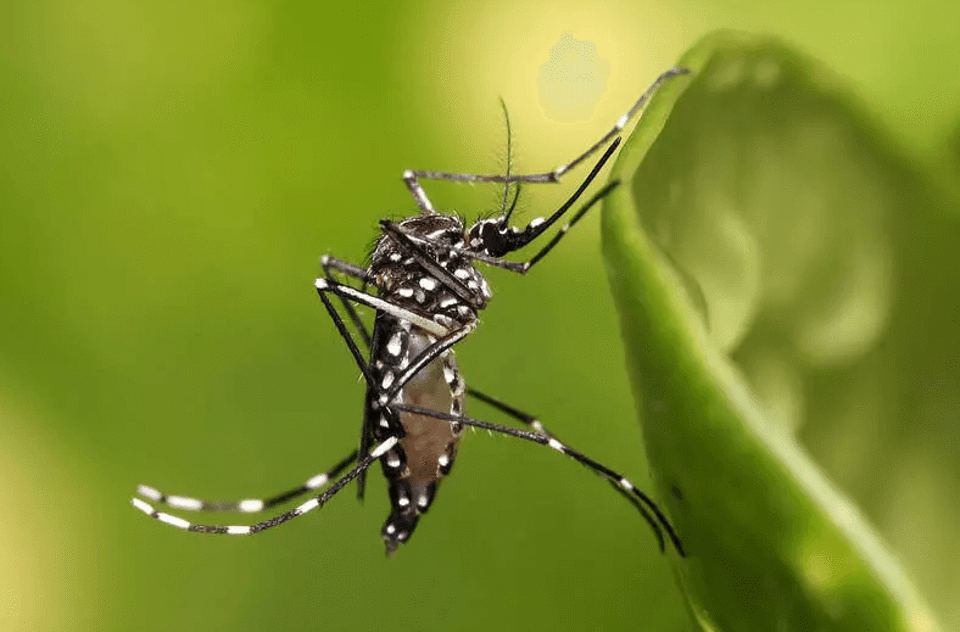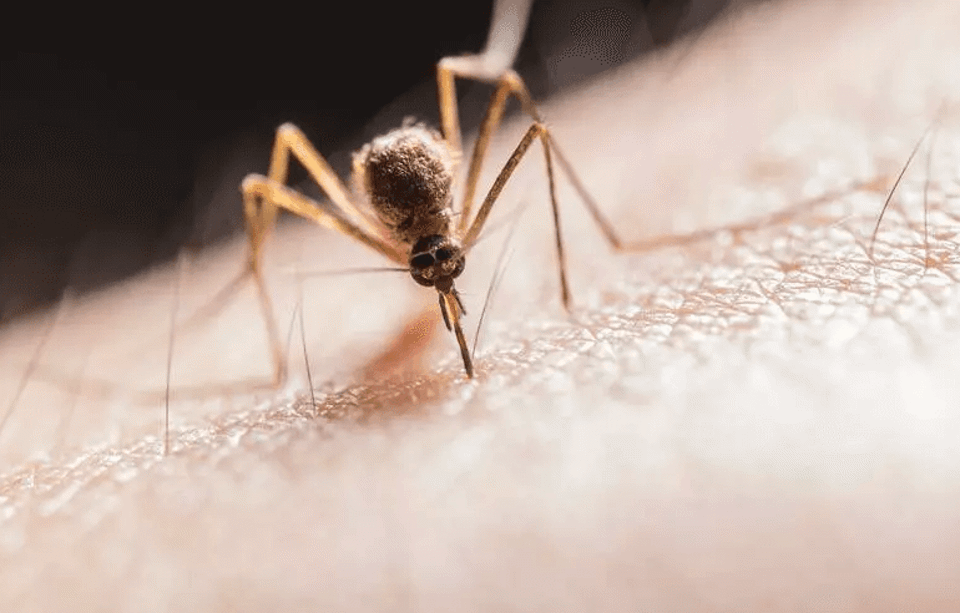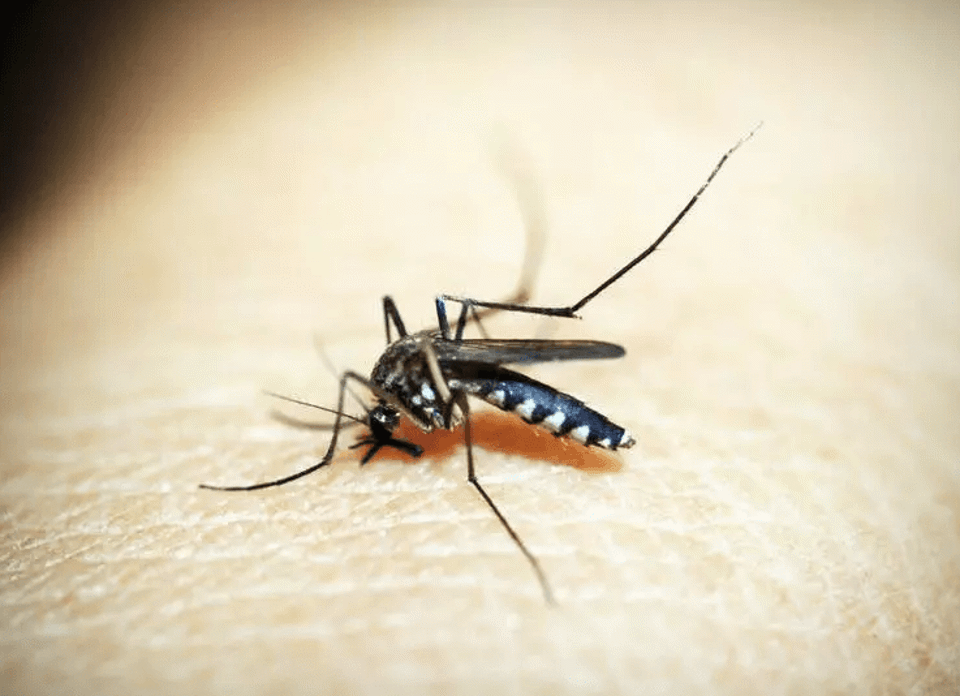During Summer, especially between August and September, there is also a population boom of mosquitoes since people tend to water their lawns more frequently, creating more stagnant water for these insects to lay eggs.
Carriers of Deadly Diseases
According to the Centers for Disease Control and Protection, while there are around 3,500 species of mosquitoes, not all of these bite humans. And for the species that do, only the females bite us (and other animals) because they need blood for their eggs, whereas males only feed on flower nectar.
Native mosquitoes in California and most parts of the country only bite at night and are generally not a cause for concern because they do not transmit diseases. However, invasive species that came from Africa, such as the yellow fever mosquito and Asia, like the Asian tiger mosquito, are known to transmit deadly diseases.
- The yellow fever mosquito, also called Aedes aegypti, transmits a wide range of deadly diseases like Dengue, Yellow Fever, Chikungunya, and Zika virus. The latter is particularly dangerous because it causes serious birth defects and is expected to spread to most North and South American countries in the next coming years.
- The Asian tiger mosquito or Aedes albopictus is spreading across the West Coast, bringing with them the Dengue virus.
Compared to native mosquito species, yellow fever and Asian tiger mosquitoes are more resilient and adaptive, with their eggs can lay dormant for up to a year and still remain viable; they also don’t need a large body of water to lay their eggs. In fact, they can even breed in a small bottle cap with water.
Stagnant Water
To reiterate, population boom often occurs in the summer months as people water their lawns more frequently, creating small patches of water where mosquitoes can lay their eggs. In addition, some plants, such as the bromeliad, have a deep center where water can collect.
One of the best ways to reduce the mosquito population is to eliminate their breeding ground, i.e., stagnant water.
(Note: Because these insects are not long-distance flyers, anything that you see in your home is either hatched in your yard or your neighbor’s.)
Natural Ways to Control Mosquito Population
If your lawn has a water feature, one way to control mosquitoes in the most natural way possible is to have mosquito fish that can eat up to 100 larvae per day.
These freshwater fish are highly resilient and can survive in a wide range of temperatures (between 33 degrees and 104 degrees) and pools that are not regularly maintained.
Simply put, mosquito fish are perfect if you have water fountains, birdbaths, and other similar features.
Dragonflies and their lesser-known cousins’ damselflies also eat mosquitoes, although their intake is not that significant to the point that they can reduce the adult mosquito population. However, dragonfly larvae feed on mosquito larvae that make the most of their diet.
Chemical Treatments
Some localities use drones to look for stagnant water where pesticide treatment can be used to kill mosquito larvae. However, this method is not applicable in ponds or any other living environment.
A good alternative to pesticide treatments like mosquito bombs and soaps containing insecticides is a bacterium called Bti (example: Mosquito Dunk) that kills mosquito larvae without harming fish and other animals.
Meanwhile, DIY hacks like apple cider vinegar, dishwashing soap, and oils (such as cinnamon oil) poured into the stagnant water have also been found to kill larvae, although these methods are not ideal for ponds and other bodies of water where animals drink from or live.
Wear Repellent
You can fend off mosquitoes by wearing protective clothing and installing window screens to keep these bloodsuckers at bay.
Also, wear a repellent registered with the EPA, which means it can provide at least a two-hour protection and is safe for people. While products containing a synthetic chemical called DEET effectively prevent mosquito bites, you may want to consider a more natural pest repellent such as those containing plant-based oils (citronella and lemon eucalyptus).
Mosquito Repellent for Yards
For most people, warmer temperatures mean summer cookouts, outdoor parties, and more mosquito bites. Hence, you may want to consider sprays and other methods to keep these pests away from your deck and lawn.
But remember, the mosquito repellent that you use in your yard shouldn’t be the same one that you spray on your skin and clothes.
You can repel mosquitoes with granules that you can directly apply to your lawn using a fertilizer spreader, a plant-based spray, a mosquito lantern or candle, or a scent-free repellent.
California Mosquito Pest Control
To learn more about backyard sprays and other similar treatments to eliminate both larvae and adult mosquitoes with no or little impact on the environment, contact Rocklin Pest Control at (916) 884-6114. They are serving residential and commercial clients in Placer County, Sacramento County, and the surrounding areas.





